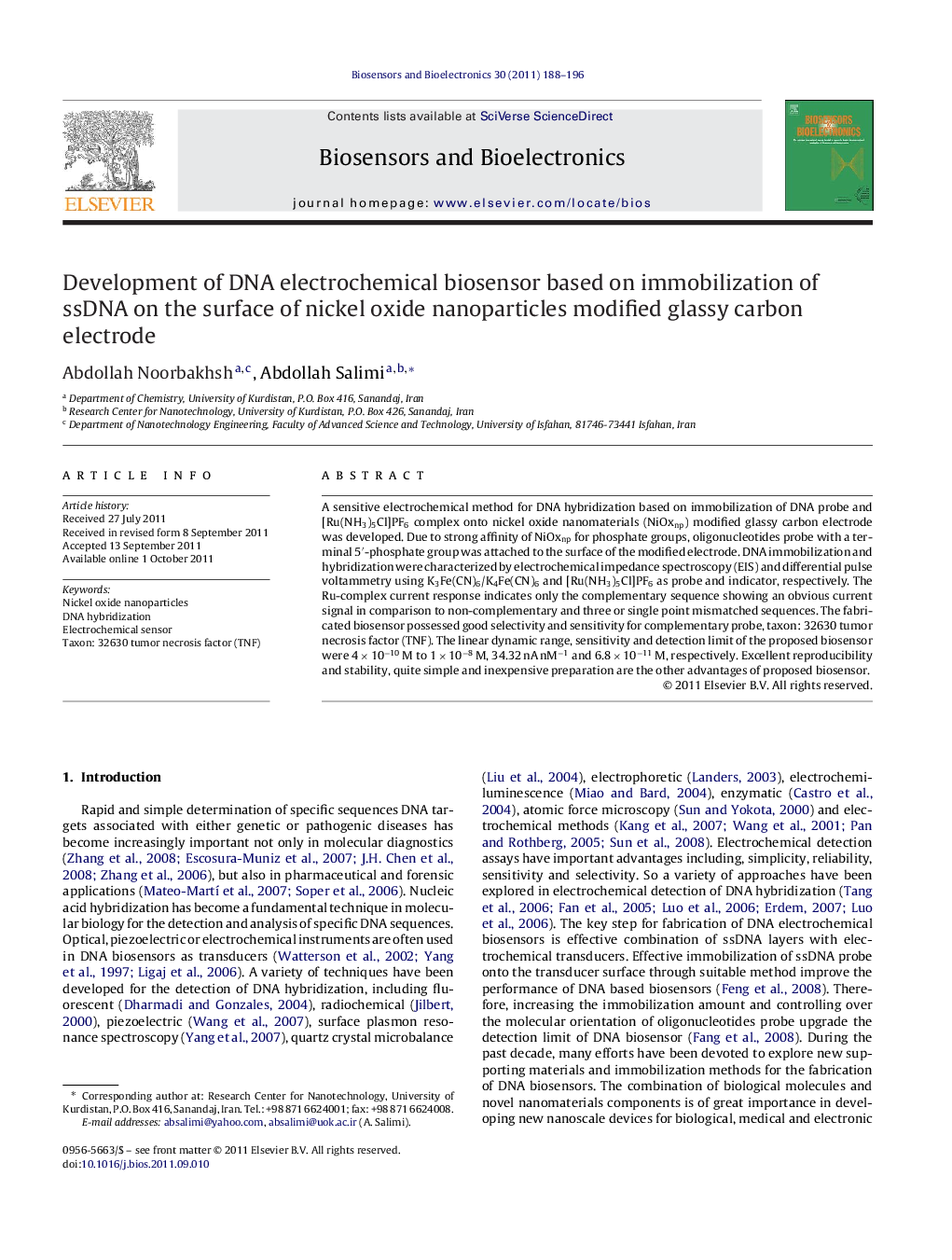| Article ID | Journal | Published Year | Pages | File Type |
|---|---|---|---|---|
| 867608 | Biosensors and Bioelectronics | 2011 | 9 Pages |
A sensitive electrochemical method for DNA hybridization based on immobilization of DNA probe and [Ru(NH3)5Cl]PF6 complex onto nickel oxide nanomaterials (NiOxnp) modified glassy carbon electrode was developed. Due to strong affinity of NiOxnp for phosphate groups, oligonucleotides probe with a terminal 5′-phosphate group was attached to the surface of the modified electrode. DNA immobilization and hybridization were characterized by electrochemical impedance spectroscopy (EIS) and differential pulse voltammetry using K3Fe(CN)6/K4Fe(CN)6 and [Ru(NH3)5Cl]PF6 as probe and indicator, respectively. The Ru-complex current response indicates only the complementary sequence showing an obvious current signal in comparison to non-complementary and three or single point mismatched sequences. The fabricated biosensor possessed good selectivity and sensitivity for complementary probe, taxon: 32630 tumor necrosis factor (TNF). The linear dynamic range, sensitivity and detection limit of the proposed biosensor were 4 × 10−10 M to 1 × 10−8 M, 34.32 nA nM−1 and 6.8 × 10−11 M, respectively. Excellent reproducibility and stability, quite simple and inexpensive preparation are the other advantages of proposed biosensor.
► Nickel oxide nanomaterials electrodeposited onto glassy carbon electrode. ► DNA probe was immobilized onto Nickel oxide nanomaterials. ► Biosensor possessed good selectivity and sensitivity for complementary probe of DNA. ► Taxon: 32630 tumor necrosis factor (TNF) was detected by the proposed biosensor. ► Complementary target discriminates from noncomplementary, three and single base-mismatches.
